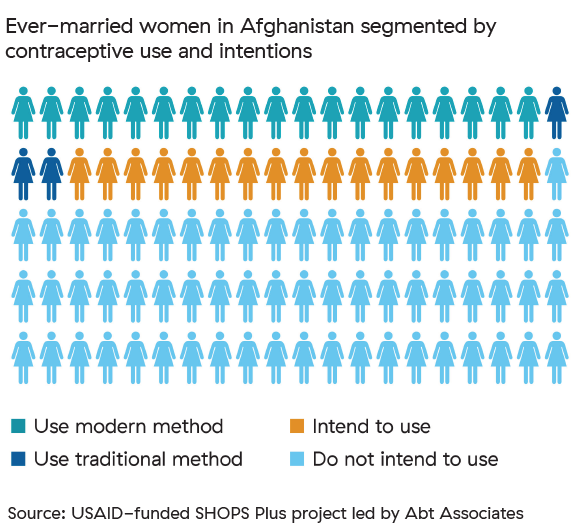Opportunities to Improve FP Programming in Afghanistan
Findings from a Secondary Analysis of the 2015 Afghanistan Demographic and Health Survey
Despite the desire of most Afghans to have a large family, a substantial unmet need for spacing births demonstrates the potential for increased voluntary uptake of modern contraceptives in Afghanistan. Focusing on those who intend to use contraception in the future could nearly double the country’s modern contraceptive prevalence rate in the near term. Limited method choice, gaps in service delivery, and the perception that injectable contraceptives are not suitable for spacing must be addressed among intenders in order to realize the potential.
SHOPS Plus project conducted a secondary analysis of the 2015 Afghanistan DHS data and facilitated participatory workshops to develop recommendations that public and private sector stakeholders can adopt to accelerate Afghanistan’s progress toward achieving its Family Planning 2020 commitments.
Click the infographic to view and save the image
SHOPS Plus
